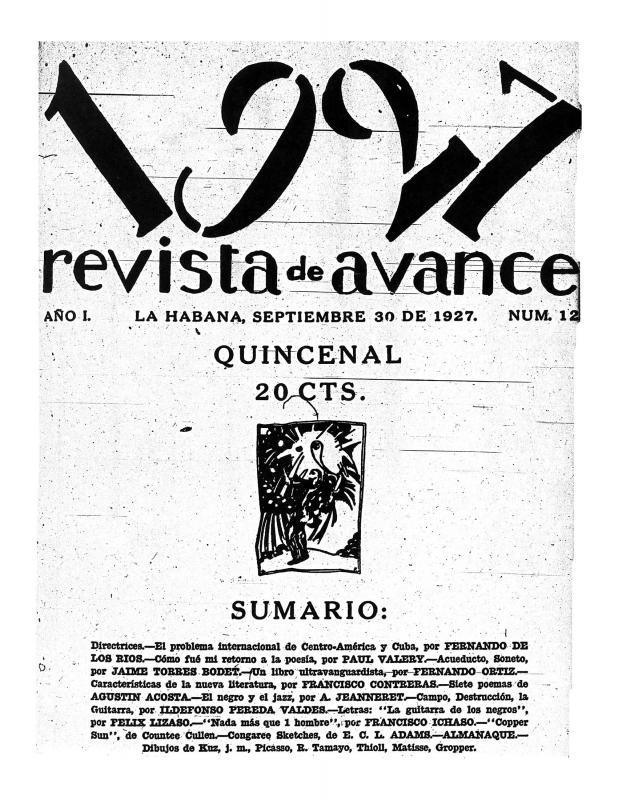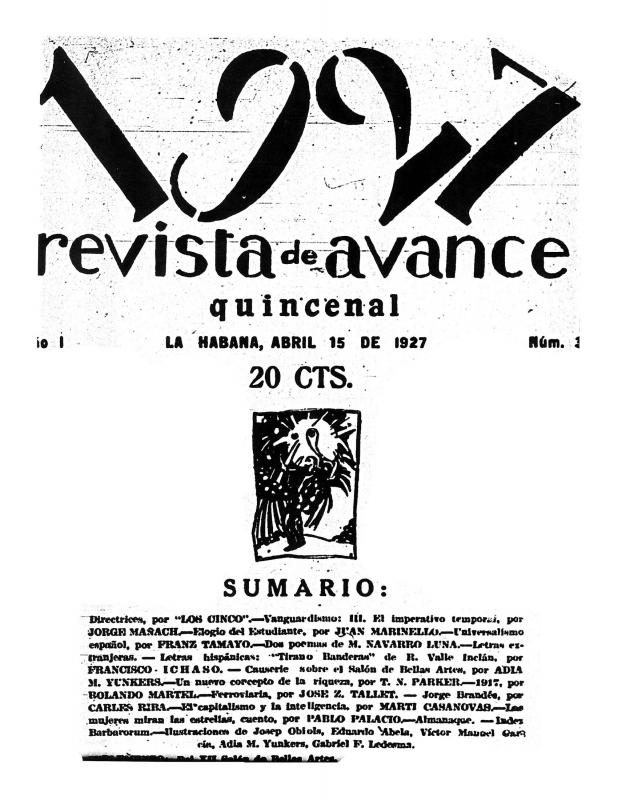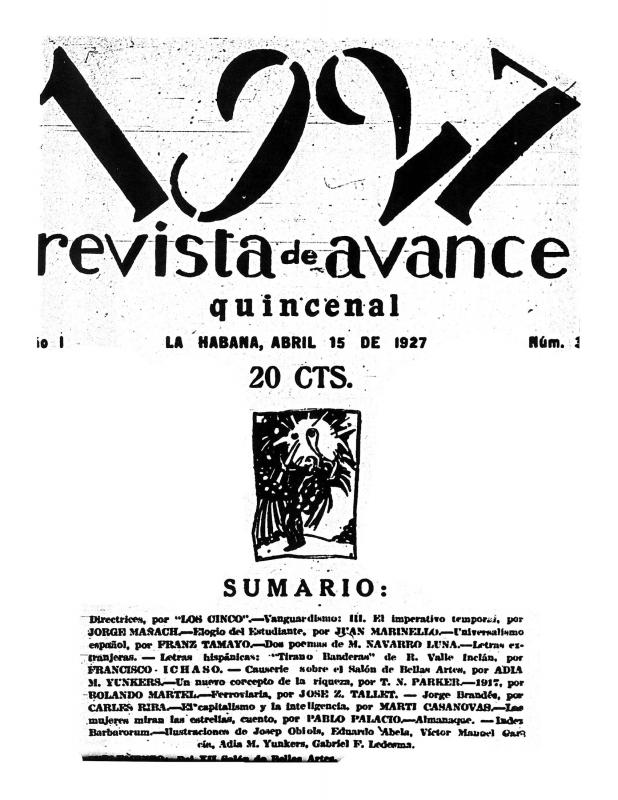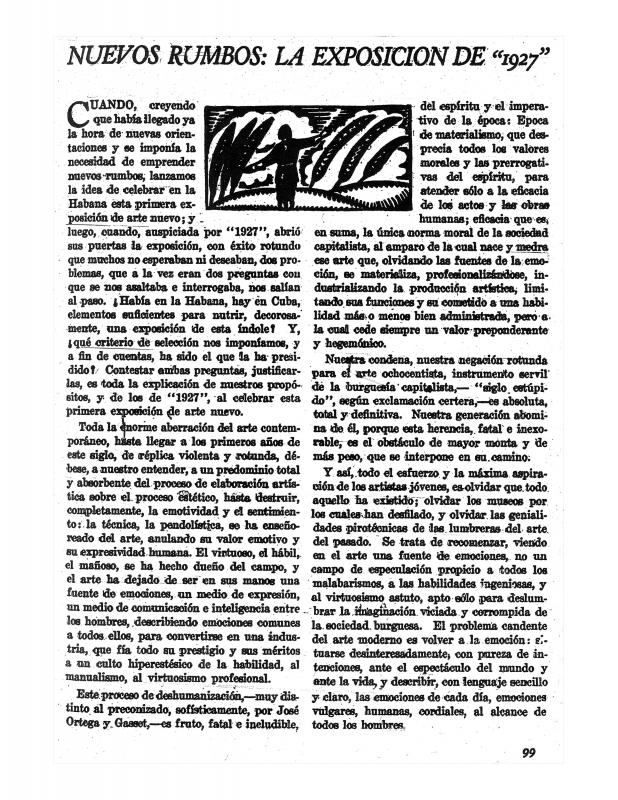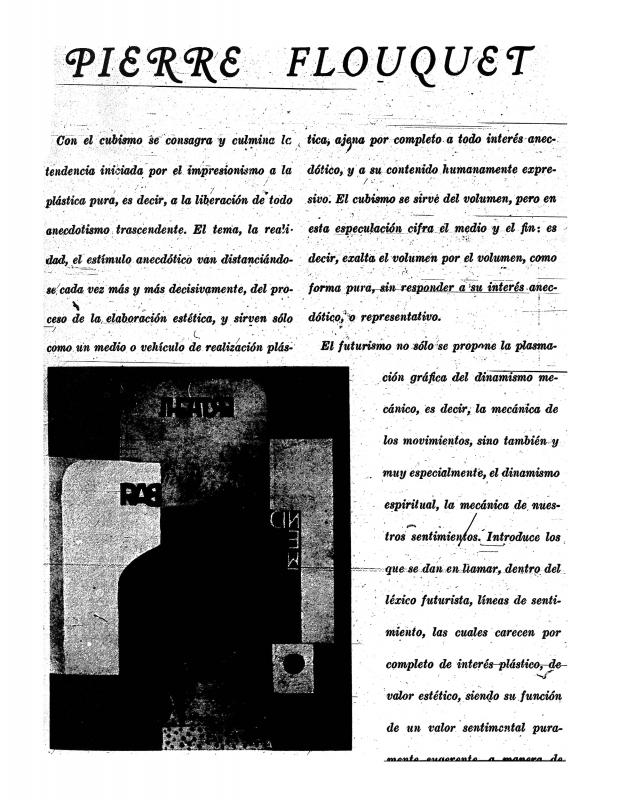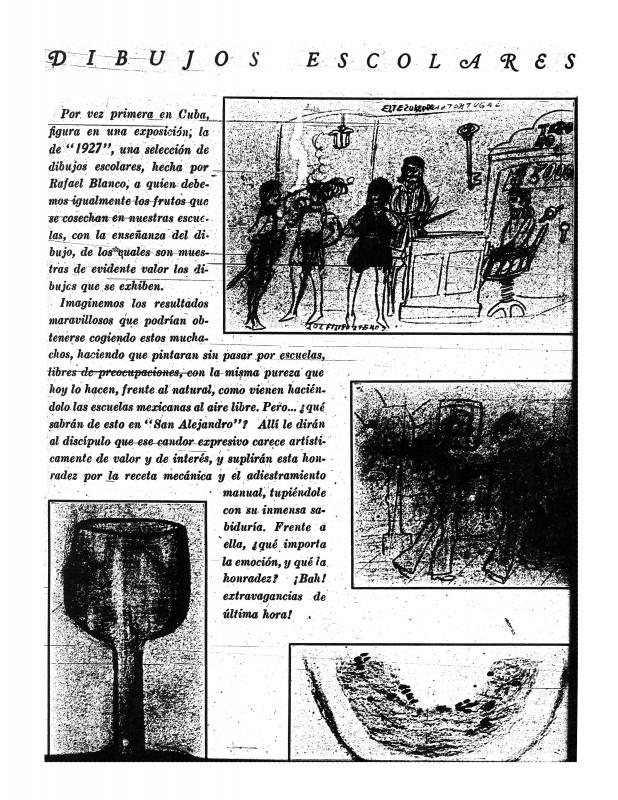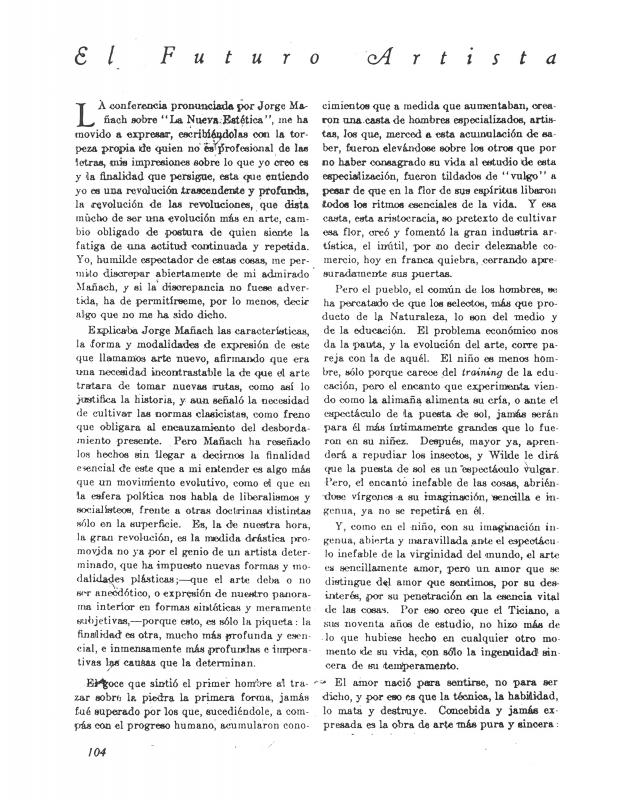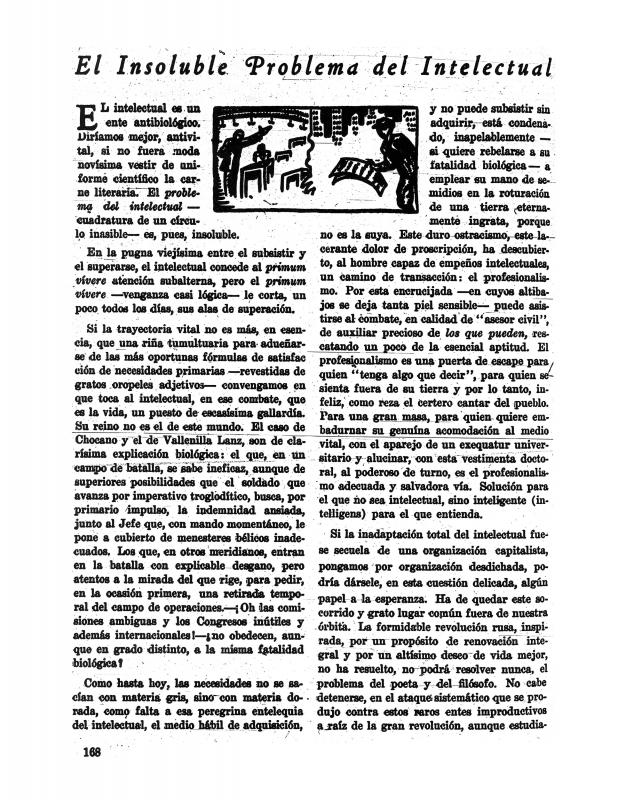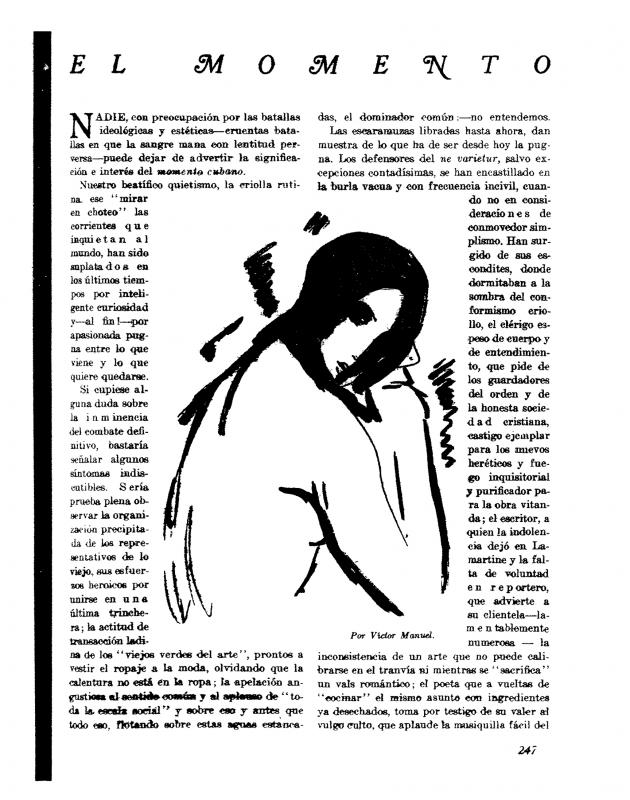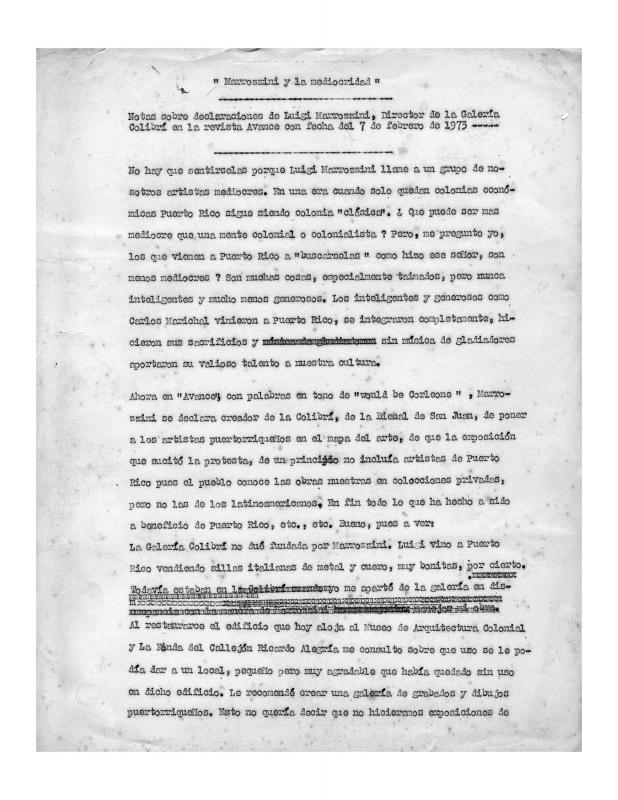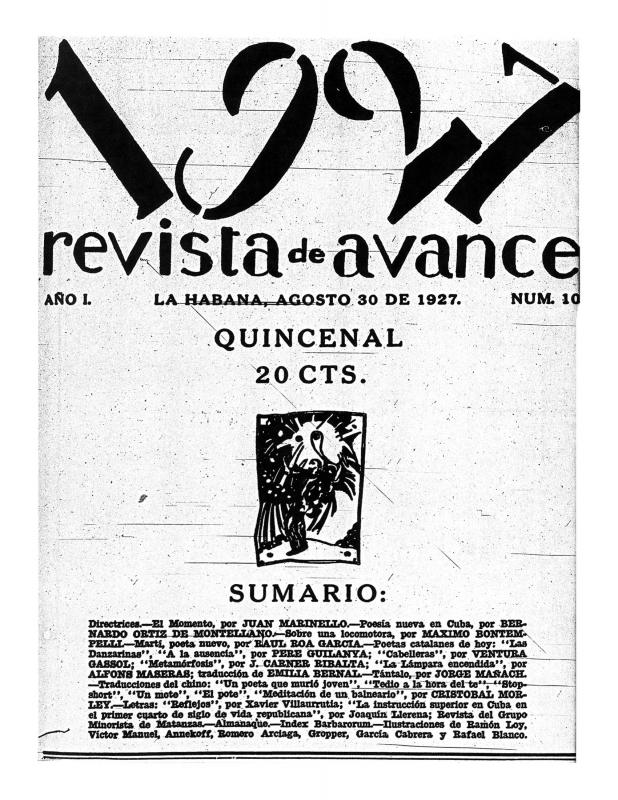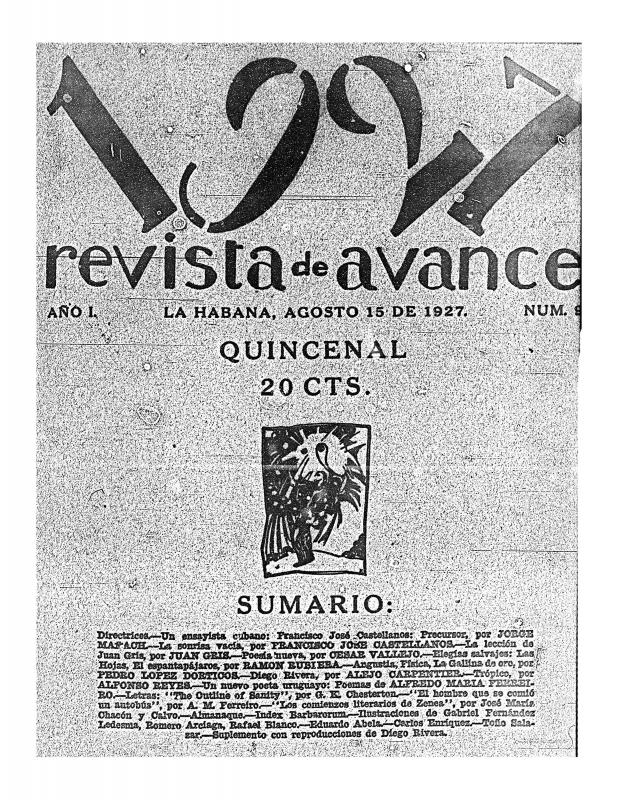The publication of this essay in Revista de avance was an exception, since the editors stated in the earliest issues that it would be a cultural journal and would therefore exclusively address cultural issues. Given the importance of the ideas expressed in this piece, they decided to publish it anyway. Here, Fernando de los Ríos suggests a solution to the economic dependence that was threatening the Central American countries and Cuba, faced with the imperialistic interests of the United States. Fernando de los Ríos was an important Spanish intellectual and politician, distinguished by his work in Spain in its socialist party. He spent much of his life lecturing about the relationships between local, national, and international economic and political systems. He also predicted that the working class would earn emancipation and liberation only after becoming educated, a process through which they would be able to acquire a revolutionary consciousness. Fernando de los Ríos was linked to the League of Nations, the international organization founded in Europe in the course of drafting the Versailles peace treaties at the end of World War I. It was considered the first international organization conceived to mediate wars and economic interests and to establish international laws ensuring the peace and sovereignty of nations. It was headquartered in Geneva, where de los Ríos gave the lecture subsequently published in the pages of avance. Years later, Geneva would again be chosen as headquarters, this time for the United Nations, the organization that replaced the League of Nations. [For other essays and texts published in Revista de avance, see the following in the ICAA digital archive: “Índice del Tomo I (Números 1 al 12 inclusive)” (anonymous) (doc. no. 1300106); by Martí Casanovas “Almanaque” (doc. no. 1299709), “Almanaque: Exposición Gattorno” (doc. no. 1298711), “El capitalismo y la inteligencia” (doc. no. 1299384), “Nuevos Rumbos: La exposición de ‘1927’” (doc. no. 1280155), and “Pierre Flouquet” (doc. no. 1299881); “[El arte nuestro debe ser instintiva o intuitivamente americano...],” by Víctor Andrés Belaúnde (doc. no. 832310); “[Basta con que revele una honda...],” by Carlos Préndez Saldías (doc. no. 832258); “Causerie sobre el Salón de Bellas Artes,” by Adia M. Yunkers (doc. no. 1298799); “[Creo que el artista americano...],” by Ildefonso Pereda Valdés (doc. no. 832328); “Dibujos escolares” (anonymous) (doc. no. 1299805); “Diego Rivera,” by Alejo Carpentier (doc. no. 1299962); “Eduardo Abela: pintor cubano,” by Adolfo Zamora (doc. no. 1280283); “El futuro artista,” by Eduardo Abela (doc. no. 1299789); by Juan Marinello “El insoluble problema del intelectual” (doc. no. 1299897), and “El momento” (doc. no. 1125671); “El prejuicio en el ritmo intelectual de las épocas,” by Francisco Ichaso (doc. no. 1299741); “La cuestión del negro” (anonymous) (doc. no. 1280299); “La lección de Juan Gris,” by Juan Gris (doc. no. 1299946); “Marrozzini y la mediocridad: notas sobre declaraciones de Luigi Marrozzini,” by Lorenzo Homar (doc. no. 861634); “Martí: Poeta Nuevo,” by Raúl Roa García (doc. no. 1300003); “Nacionalismo y Costumbrismo,” by Severo García Pérez (doc. no. 1300058); “Nacionalismos en América,” by Eugenio d’Ors (doc. no. 1299757); “Nota de los 5—2,” by Jorge Mañach et al. (doc. no. 1299930); “Programa de criolledad,” by Félix Lizaso (doc. no. 1125414); and “Vértice del gusto nuevo,” by Jorge Mañach (doc. no. 832383)].

